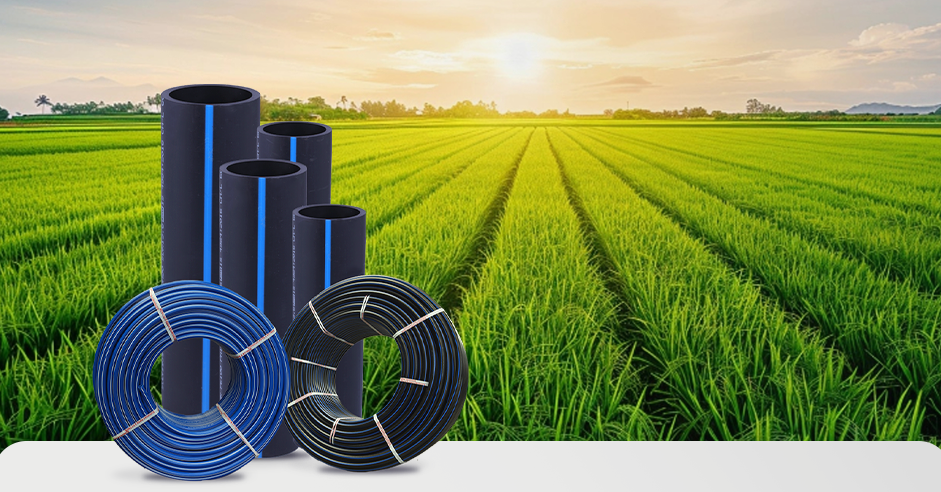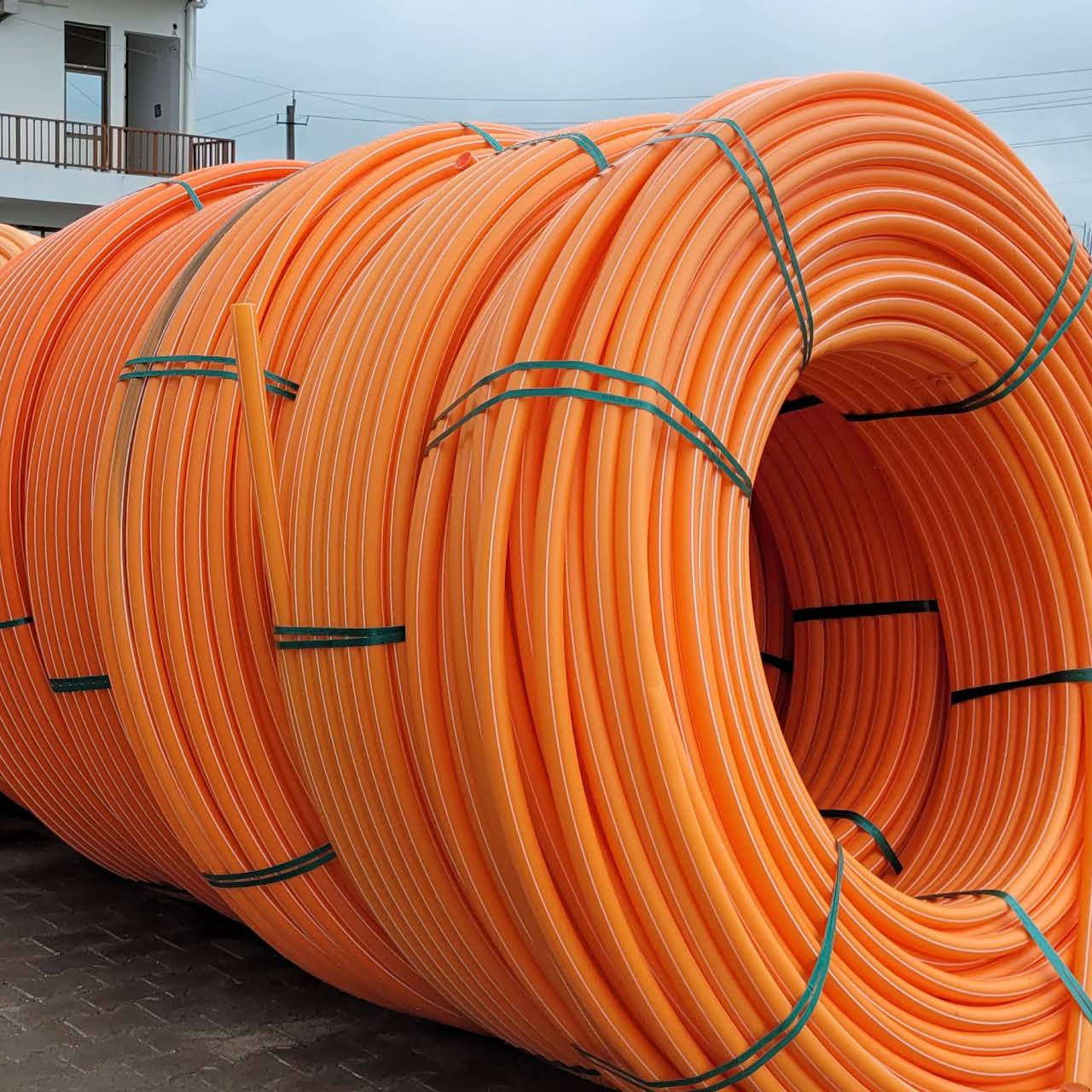Why Partnering with Pipe Supplier American Plastics Midland Ensures Trusted Solutions
A Comprehensive Overview to the Different Usages of HDPE Pipeline in Construction and Market
HDPE pipelines have become an essential part in modern building and commercial applications. Their unique buildings, such as resistance to corrosion and light-weight layout, make them appropriate for a vast array of uses. From water system systems to farming watering, HDPE pipelines supply solutions that boost effectiveness and sustainability. Recognizing their varied applications is essential for professionals wanting to optimize facilities. What particular advantages do these pipes give each market?
Water Supply and Distribution Systems
Water supply and circulation systems are important components of urban infrastructure, frequently relying on high-density polyethylene (HDPE) pipes for their durability and effectiveness. These systems transport drinkable water from treatment facilities to consumers, making sure availability and security. HDPE pipes are favored for their resistance to deterioration, chemicals, and severe temperature levels, which improves their longevity and decreases upkeep expenses. Additionally, their light-weight nature enables for less complicated installation and transport, making them excellent for numerous metropolitan and country applications.
The versatility of HDPE pipes allows them to be set up in tight areas and around obstacles, minimizing the requirement for considerable excavation (Texas hdpe pipe manufacturer). In addition, their smooth interior surface area minimizes rubbing losses, improving water flow prices. As cities continue to grow, the demand for reputable water supply systems boosts, placing HDPE pipelines as a lasting option for modern-day infrastructure jobs. Their tried and tested performance history makes them a favored selection among designers and urban coordinators alike
Wastewater Monitoring and Therapy
Effective wastewater administration and therapy are essential for maintaining public health and environmental high quality. HDPE pipelines play an important role in this procedure because of their resilience, resistance to rust, and capability to stand up to rough chemicals. These pipes are frequently utilized in different applications, including sewage systems, stormwater drain, and wastewater treatment facilities. Their lightweight nature helps with much easier setup and transport, reducing labor prices and time.
On top of that, HDPE pipelines have a smooth interior surface area that reduces friction loss, advertising efficient circulation rates. They are likewise less susceptible to leakages and failings compared to typical products, making sure that contaminants are consisted of effectively. In addition, their flexibility permits versatility in different soil problems, making them suitable for diverse ecological setups. As industries progressively prioritize lasting practices, the usage of HDPE pipes in wastewater administration systems lines up with objectives for reducing ecological influence and boosting source recuperation.
Agricultural Irrigation Solutions
In farming settings, reliable irrigation solutions are important for enhancing crop returns and handling water resources. HDPE (High-Density Polyethylene) pipelines play a vital role in modern-day watering systems because of their durability, adaptability, and resistance to corrosion. Their ability to endure high pressures makes them suitable for both surface area and subsurface irrigation applications, ensuring uniform water circulation throughout areas.
Farmers can make use of HDPE pipelines in drip irrigation systems, which provide water straight to plant origins, decreasing wastefulness and promoting healthy growth. Additionally, these pipelines are light-weight and very easy to set up, lowering labor expenses and setup time. Their long lifespan and low upkeep needs additionally improve their allure in agricultural practices.
HDPE pipelines are ecologically friendly, as they can be reused and do not leach harmful chemicals right into the dirt. This makes them a sustainable choice for farmers intending to embrace eco-friendly farming techniques while making the most of productivity.
Industrial Applications and Processes
Adaptability is a hallmark of HDPE pipelines, making them vital in different commercial applications and processes. These pipelines are widely utilized in chemical handling industries as a result of their outstanding resistance to a large range of harsh compounds. HDPE's light-weight nature, integrated with polyethylene pipe high tensile toughness, allows for simple installment and long-lasting efficiency popular atmospheres.
In the oil and gas field, HDPE pipes play an important duty in delivering hydrocarbons and gases, thanks to their toughness and flexibility - American Plastics HDPE Pipe Manufacturing. In addition, they are utilized in mining procedures for the transport of slurry and other materials, where standard piping systems might fall short
HDPE pipes are increasingly used in manufacturing facilities for water supply lines and wastewater administration. Their capability to endure severe temperature levels and pressures makes them appropriate for a range of industrial processes. In general, HDPE pipes contribute greatly to efficiency and safety across diverse industrial applications.
Stormwater Management and Water Drainage Equipments
Stormwater monitoring and water drainage systems are crucial components in urban infrastructure, created to manage excess rainfall and reduce flooding dangers. High-density polyethylene (HDPE) pipes are significantly utilized in these systems as a result of their longevity, versatility, and resistance to deterioration. These pipes effectively transfer stormwater away from populated locations, sanitary sewer cleanout decreasing surface runoff and stopping waterlogging.
HDPE's light-weight nature assists in simpler installment, reducing labor prices and building time. In addition, its resistance to chemicals and environmental stress factors warranties durability and integrity in numerous environments. Along with conventional drainage applications, HDPE pipes are likewise used in ingenious solutions such as eco-friendly facilities, that includes rainfall gardens and permeable pavements.

Often Asked Questions
Just How Does HDPE Pipe Contrast to PVC Pipeline in Cost?
As a whole, HDPE pipe often tends to be more pricey than PVC pipeline due to its enhanced durability and versatility. Long-lasting price factors to consider, such as upkeep and lifespan, may favor HDPE in certain applications.
What Is the Life Expectancy of HDPE Piping Under Diverse Problems?
HDPE pipelines commonly have a life-span of 50 to 100 years, relying on environmental problems, setup practices, and usage. Elements such as temperature, dirt type, and direct exposure to chemicals can considerably influence their durability.
Can HDPE Pipeline Be Recycled After Usage?
Yes, HDPE pipelines can be reused after use. The recycling procedure entails melting down the product, allowing it to be repurposed into new items, thus promoting sustainability and decreasing environmental effect connected with plastic waste.
Exist Any Certain Setup Obstacles With HDPE Pipelines?
Setup difficulties with HDPE pipelines consist of appropriate jointing techniques, guaranteeing appropriate trench problems, and managing thermal development. Furthermore, proficient labor is needed to take care of specific devices, which can make complex the installment process in numerous environments.

What Qualifications Should I Search For When Buying HDPE Water Lines?
When purchasing HDPE pipes, one need to seek qualifications such as ASTM, AASHTO, and ISO, which confirm quality and compliance with market requirements, guaranteeing longevity and efficiency in different applications. - hdpe pipe fittings Midland TX